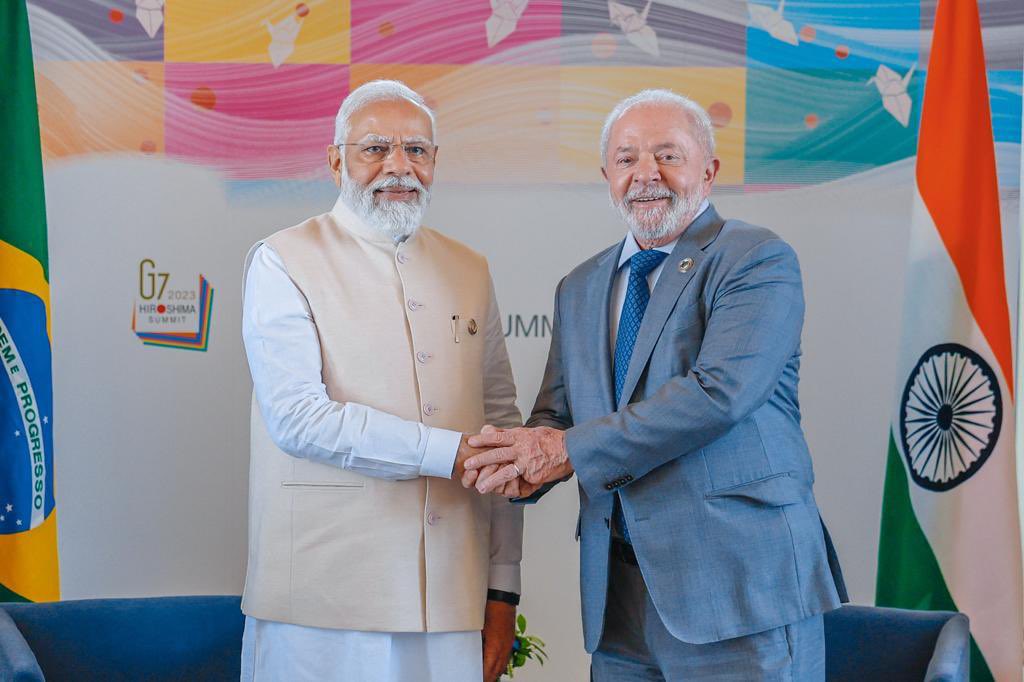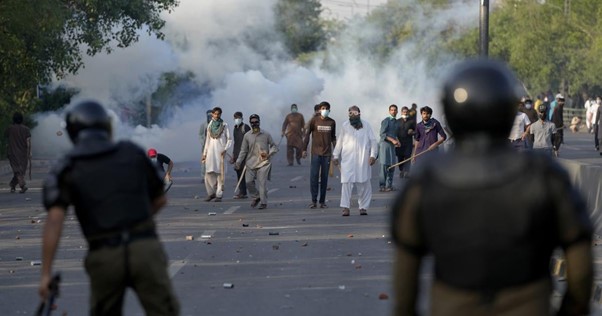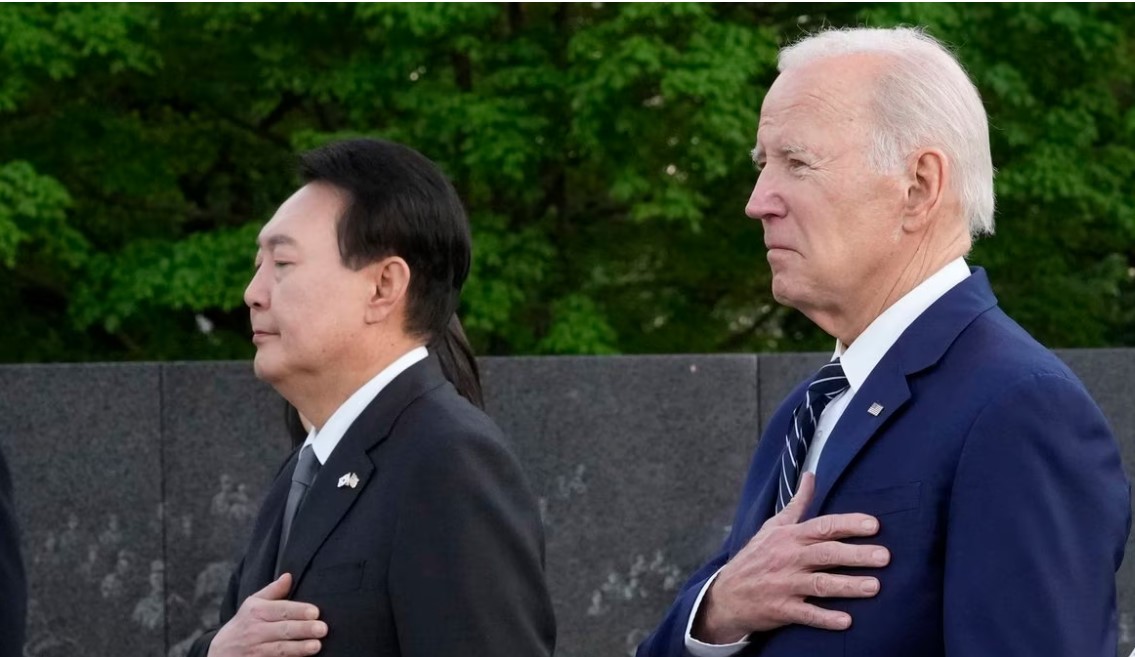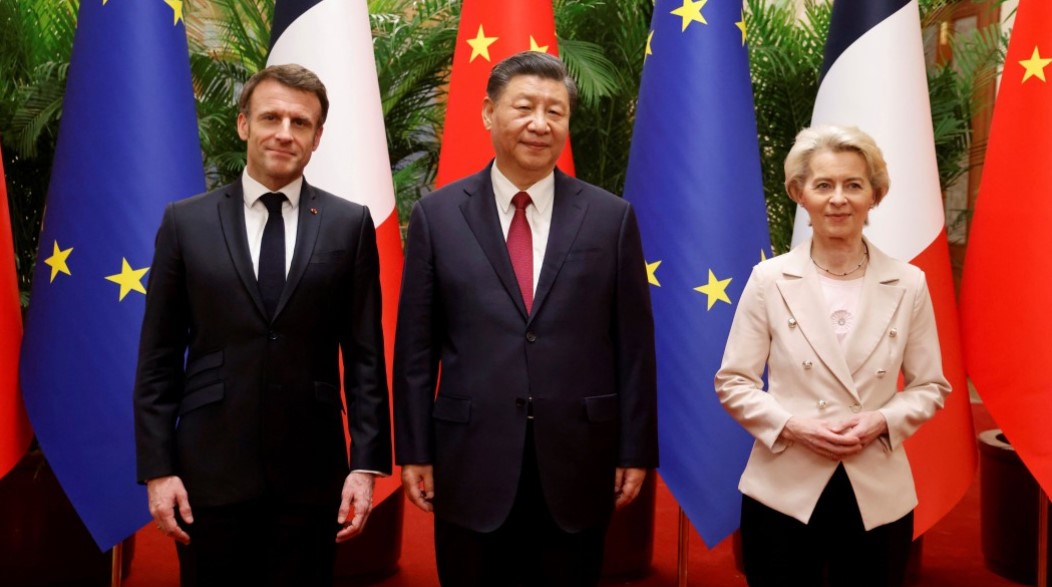
QUAD And The Counter-Terrorism Measures
Fri, 10 Mar 2023 | Reading Time: 5 minutes

By Colonel B S Nagial (Retd)
Since its formation in 2007, QUAD has been in the news for numerous reasons. Initially, this was perceived as anti-China, but QUAD member countries denied it. The Quadrilateral Security Dialogue, popularly known as QUAD, began in 2007. The Prime Minister of Japan, Shinzo Abe, mooted this idea, which India, Australia and the US supported. This dialogue was paralleled by a joint military exercise known as Exercise Malabar. Its diplomatic and military arrangements were perceived as an anti-Chinese economic and military presence in the region. Even China described QUAD as Asian NATO, which QUAD members denied. But the QUAD ceased to exist when Australia withdrew from it.
In 2017, during ASEAN Summit in Manila, all four members (India, US, Japan and Australia) announced the formation of QUAD. The tension between China and the QUAD member countries has grown substantially since then, which could be described as a new Cold War in the region.
The Spirit of the QUAD, its vision document for a Free and Open Indo-Pacific and rule-based maritime order by its members in the East and South China Seas, were adopted in Mar 2021. Members pledged their support in response to the COVID-19 pandemic. Considering the situation that emerged from the COVID-19 pandemic, a QUAD plus meeting was held in which representatives of South Korea, New Zealand and Vietnam were co-opted to improve the Global Supply Chain.
On 03 Mar 2023, the QUAD Foreign Ministers conference was held on the sidelines of the G20 Foreign Ministers meeting in New Delhi. They reaffirmed their pledge to support a free and open Indo-Pacific, which is inclusive and robust. Strong support was expressed for freedom, the rule of law, sovereignty and territorial integrity. It was stressed that there should be a peaceful settlement of disputes without employing threats or the use of force. It strongly opposed any one-sided attempt to change the status quo. This is essential to the Indo-Pacific region’s peace, stability, and prosperity.
However, the foremost step was establishing the QUAD Group on Counter-terrorism. They unambiguously denounced terrorism and violent extremism in all its shapes and sizes. They further said that they condemn the use of terrorist proxies and lay stress on denying any logistical, financial, or military support to terrorists. These terrorists could be used to launch terror attacks, including international and cross-border attacks. They condemned all the terrorist attacks, together with 26/11 Mumbai, which consumed many lives of citizens from all QUAD member countries. Member countries desired to work with our regional and international governments to promote accountability for the perpetrators of such terrorist attacks, including through UN Security Council 1267 Sanctions Committee designations.
They further enumerated that terrorism has become more and more protracted, reinforced by terrorists’ capabilities and accessibilities to, and the use of, nascent and evolving technologies such as Unmanned Aerial systems (UAS), the internet, including social media forums for recruitment and provocation to pledge terrorist attacks, and for the financing, planning, and preparation of terror and violence. Members further deliberated on these elements at the QUAD Counter-Terrorism Policy Meeting and tabletop exercise held in Australia in October 2022. They announced the establishment of the QUAD Working Group on Counter-Terrorism, which will reconnoitre cooperation amongst the QUAD and with Indo-Pacific countries to counter new and evolving forms of terrorism, radicalisation to violence, and violent extremism. The first meeting of this group will be held in the US in 2023 to chalk out the further course of action.
Terrorism is a global issue, and here is a brief overview of the threat of terrorism in the US, India, Japan, and Australia:
- United States: The US has been a target of terrorism for many years and remains a primary target for many terrorist groups, including Al-Qaeda, ISIS, and various domestic extremist groups. The 9/11 attacks on the World Trade Center in New York City in 2001 remained one of the most significant terrorist attacks in modern history. They prompted the US government to undertake substantial efforts to improve homeland security and counter-terrorism measures. In recent years, there has been a rise in domestic terrorism, with incidents linked to far-right and white supremacist groups.
- India: India has also faced a significant threat of terrorism, notably from groups based in neighbouring Pakistan, such as Lashkar-e-Taiba and Jaish-e-Mohammed. These groups have carried out several high-profile attacks in India, including the 2008 Mumbai attacks, which killed more than 160 people. India has responded to the threat of terrorism with various measures, including increased border security, intelligence sharing, and counter-terrorism operations.
- Japan: While Japan has not faced as significant a threat of terrorism as some other countries, it has experienced many incidents in recent years, including a knife attack in 2016 that killed 19 people at a facility for disabled people. The Japanese government has implemented measures to improve security, including increased surveillance and monitoring potential terrorist threats.
- Australia: Australia has also experienced several terrorist incidents in recent years, including a siege at a café in Sydney in 2014 that resulted in the deaths of two hostages. The Australian government has responded with various measures, including increased security at public events and transportation hubs and improved coordination and information sharing among law enforcement and intelligence agencies.
The threat of terrorism remains a significant concern for many countries worldwide and requires ongoing efforts to prevent and respond to these potential threats. World realised the impact of terrorism on 11 Sep 2001, when it crossed the Rubicon and became unrecognisable following the terror attacks on the US. The force of the attack, the targets chosen, and the terrorists’ daring and sophisticated planning shattered all the conventions on terrorism and crossed all the limits. It caused massive damage in terms of lives and material. All this turned international terrorism into an immediate, tangible, and existential threat to the world community. The attacks of 9/11 were immediately followed by many biological terror attacks marked by the beginning of a transition from modern terrorism to unlimited and unrestrained post-modern terrorism. Thus terrorism no longer remained a local problem to be dealt with in one country or another. Instead, it became an extraordinary danger to world peace and security.
India has been suffering the terrorism for the last seven decades plus. India’s efforts to combat terrorism are multifaceted and involve a range of measures to prevent and respond to potential threats. India has been actively engaged in counter-terrorism efforts internationally, recognising that terrorism is a global challenge that requires a coordinated and collective response from the international community. Some of the critical counter-terrorism efforts that India has undertaken at the world level are:
- United Nations: India has strongly advocated for UN efforts to combat terrorism and has actively participated in several initiatives and programs to prevent and respond to terrorist threats. India has also been a leading voice in efforts to strengthen the UN’s counter-terrorism framework, including through the adoption of the Global Counter-Terrorism Strategy.
- International Cooperation: India has worked closely with other countries to combat terrorism, particularly intelligence sharing and law enforcement cooperation. India has also been actively involved in global efforts to combat terrorism through the Financial Action Task Force (FATF) and other multilateral organisations.
- Regional Cooperation: India has sought to strengthen regional cooperation in South Asia to combat terrorism, including through the South Asian Association for Regional Cooperation (SAARC) and other regional initiatives. India has also sought to enhance its cooperation with neighbouring countries, such as Bangladesh and Sri Lanka, to address common security challenges.
- Countering Radicalisation: India has been actively involved in efforts to counter the spread of extremist ideologies that can lead to radicalisation and terrorism. India has engaged in dialogue and exchange programs with other countries to share best practices and promote cooperation in countering radicalisation.
India’s counter-terrorism efforts at the world level have been focused on building partnerships and strengthening cooperation among countries to prevent and respond to terrorist threats. India’s ongoing engagement in international forums and initiatives reflects its commitment to addressing terrorism as a global challenge. It underscores recognising the international community’s need for a coordinated and collective response. Now forming the QUAD Group of Counter-Terrorism would undoubtedly boost India’s efforts to fight terrorism at the grassroots level.
Disclaimer
The opinions expressed in this article are the author’s own and do not reflect the views of Chanakya Forum. All information provided in this article including timeliness, completeness, accuracy, suitability or validity of information referenced therein, is the sole responsibility of the author. www.chanakyaforum.com does not assume any responsibility for the same.
Chanakya Forum is now on . Click here to join our channel (@ChanakyaForum) and stay updated with the latest headlines and articles.
Important
We work round the clock to bring you the finest articles and updates from around the world. There is a team that works tirelessly to ensure that you have a seamless reading experience. But all this costs money. Please support us so that we keep doing what we do best. Happy Reading
Support Us




















POST COMMENTS (0)